Neurotransmitters and the Motivation Hormone
The brain is filled with neurotransmitters like dopamine that send chemical signals to the rest of the body. These interactions get more complex as it travels through different pathways.

Selfpause Affirmation App
Download the app to get 1,000’s of affirmation meditations and everything you need to write, record and listen to your own.
Dopamine
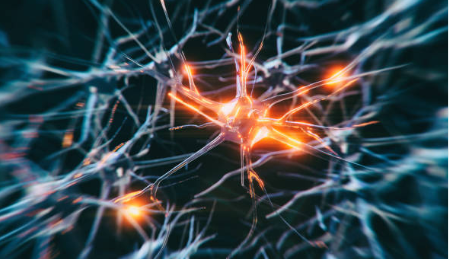
Dopamine is a brain chemical that increases our motivation to complete tasks. It is also associated with higher assertiveness and perceptions of social support. Getting work done and receiving positive feedback are two common ways to boost the level of dopamine in the brain. Breaking a big task down into smaller milestones is another way to get a dopamine high.
Dopamine is also important in learning and memory. It plays an essential role in working memory, which is our ability to retrieve information from short-term memory. Dopamine also promotes nerve cell activity. The hormone also works with another hormone, serotonin, during memory formation. It also plays a role in reward-driven learning and memory.
The level of dopamine in the brain differs from person to person. It is thought to be the driving force behind motivation. People who have low levels of dopamine may find it difficult to complete their tasks. Low levels of dopamine may also be the cause of fibromyalgia, Parkinson’s disease, and multiple sclerosis.
A healthy diet rich in omega-3 fatty acids and proteins is another way to raise dopamine levels. Exercise can also help produce dopamine. It also improves sleep, which is critical to maintaining a balanced dopamine level.
Serotonin
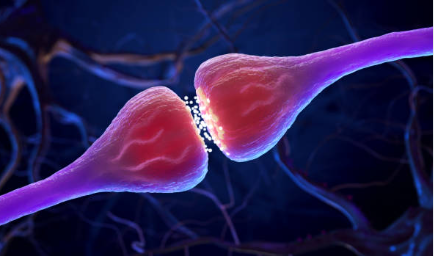
Serotonin is a naturally occurring hormone that is found in the brain and the intestines. It promotes healthy digestion, regulates the heart rate, and heals wounds. The brain produces most of the serotonin, but it also has a major role in the gut. Serotonin acts on receptors in the muscle lining of the intestines and helps move food through the digestive tract. When serotonin levels are elevated, nausea and vomiting are reduced.
Serotonin is also involved in mood regulation. It also boosts the immune system, calms the nervous system, and regulates the body’s response to stress. It can also help improve a person’s self-esteem, which can help them feel more confident and happier.
Serotonin also plays an important role in memory and learning. Studies in mice and C. elegans indicate that serotonin can regulate aging, as well as memory and learning. However, as it decreases during late aging, its levels decrease. This decrease can be prevented with a medication known as serotonin receptor inhibitor.
There are many medications and lifestyle changes that can help a person with low levels of serotonin. Serotonin also helps to regulate appetite and regulate body temperature. If you are experiencing these problems, you should consult a medical professional to find the best treatment for your specific situation.
Oxytocin

Oxytocin is a neurotransmitter that regulates social behavior and emotional responses. Its effects vary considerably among individuals and are influenced by individual personality traits and contexts. For example, social norms and gender influence oxytocin signaling in different ways. Despite its complexity, the effects of oxytocin on social behavior have been studied for more than a century.
Oxytocin is produced by the pituitary gland, a pea-sized structure at the base of the brain. It is sometimes known as the “love hormone” and is released when humans touch or cuddle with each other. It is also released when people play with dogs. Studies have shown that playing with dogs increases oxytocin levels in humans.
Getting plenty of exercise is also an effective way to boost the levels of oxytocin. It is also possible to increase oxytocin levels by eating delicious foods. Eating fish and sharing a meal with someone you love can also increase oxytocin. Some researchers have also found that taking dietary supplements containing oxytocin can improve the release of this hormone. However, you should always consult with a doctor before taking any supplements.
Oxytocin has also been linked to human bonding and trust. Studies have shown that couples with higher blood levels of oxytocin have greater levels of love in their relationships. This hormone affects the amygdala, the brain area that is responsible for emotion, motivation, and reward. Studies have indicated that it may also play a role in competitive relationships and the fight-or-flight response.
Endorphins
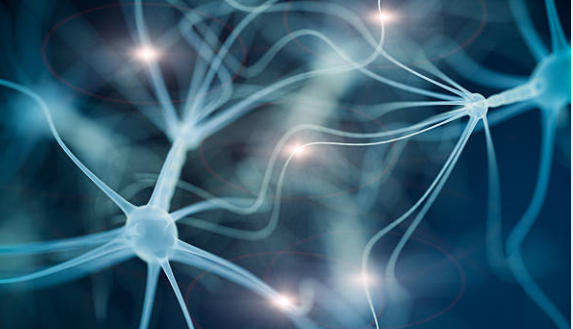
Endorphins are a natural pain reliever and motivation hormone that is produced by the body during physical activities. Exercise, sex, or listening to music can all trigger the release of these hormones. The release of endorphins can improve mood and reduce depression. It can also increase self-esteem. However, endorphins aren’t effective for everyone, so it is best to speak with your healthcare provider before trying this therapy.
Endorphins are produced by the pituitary gland, a pea-sized protrusion that is connected to the hypothalamus (basically, the brain). The hypothalamus regulates many physical and emotional responses, including pain and reward. Endorphins are often released when pain receptors in the body trigger the release of a neuropeptide called Substance P.
These hormones have many benefits, but they also have side effects. While some medications are effective at increasing endorphin levels, side effects often include mood swings, brain fog, and addiction. Fortunately, a more natural way to boost your endorphin levels is to increase your physical activity. Physical exercise, such as brisk walking or running, has been shown to release endorphins.
Endorphins are also a natural pain reliever. They act on the opioid receptors in the brain, masking pain signals. As a result, endorphins can boost motivation.
Reward learning
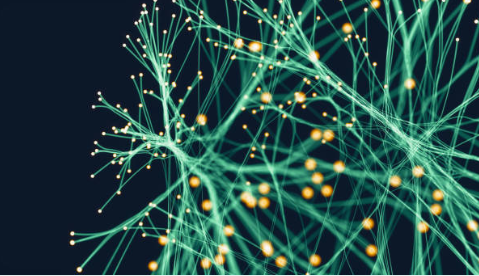
The importance of reward learning for knowledge acquisition has been understated, however, and is often overlooked in educational psychology research. Although there are notable exceptions, reward learning is critical for understanding a range of aspects of knowledge acquisition. It is the mechanism by which we learn new things and reinforce the importance of this new knowledge by rewarding ourselves for our efforts.
To understand how this method works, we must consider what makes a reward learning process “uninfluencable.” First, a person has beliefs about his environment and what he/she wants. These beliefs are used to calculate the reward function. Secondly, the agent is able to update his or her beliefs about the environment.
A reward can be both an actual or perceived stimulus. The reward value of a new information is a function of the person’s expected skill level, cost of finding the information, and reward valence. These factors are all integrated in the brain’s computational mechanism to determine the value of learning.
The reward value of new knowledge can vary across learners, depending on their value beliefs. In order for an experience to be a reward, the task should be interesting for the participant, and the rewards should be contingent on the task being performed correctly. In addition, the rewards should be given soon after the behavior is performed.
Amygdala
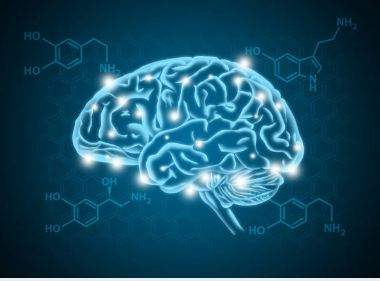
Amygdala is a key region of the brain that plays a central role in the processing of emotion. As such, it is responsible for triggering various responses, and it activates efferents based on the valence of stimuli. Depending on the level of threat, the amygdala may engage the hypothalamic-pituitary-adrenal axis or initiate sympathetic nervous system activity. In contrast, positive or trust-related responses may activate oxytocinergic (OT) systems.
The amygdala is also associated with long-term declarative memory of emotional events. Its activation is regulated by the spatial distribution of cues and the magnitude of reward predictions. When an individual has a rewarding experience, it is likely to feel motivated to repeat the same behavior.
The amygdala also affects sexual behavior and aggression. The size of the amygdala increases with aggression. In addition, it also plays an important role in sex drive in humans. The size of the amygdala is dependent on age, hormone levels, and sex drive. In females, the amygdala is smaller than in males.
The amygdala is a large almond-shaped cluster of nuclei deep inside the temporal lobe. It is a component of the limbic system and is associated with many mental health conditions, including fear, anxiety, and posttraumatic stress disorder. Its function is much more complex than just processing fear, though.
Our Top FAQ's
Neurotransmitters are chemical messengers that transmit signals between neurons (nerve cells) in the brain and throughout the body. They play a key role in controlling various aspects of behavior, including motivation. For example, the neurotransmitter dopamine is involved in reward and pleasure, and is often thought to play a role in motivation and decision-making.
Different neurotransmitters have different effects on motivation and behavior. Dopamine, for instance, is involved in reward and pleasure, and low levels of dopamine have been linked to reduced motivation and anhedonia (an inability to experience pleasure). Serotonin is another neurotransmitter that is involved in mood and motivation, and low levels of serotonin have been associated with depression and anxiety. Noradrenaline is a neurotransmitter that plays a role in arousal and alertness, and is often thought to be involved in motivation and attention.
Neurotransmitter imbalances can contribute to disorders of motivation. For example, low levels of dopamine and serotonin have been linked to depression, which is often characterized by a lack of motivation and anhedonia. Attention deficit hyperactivity disorder (ADHD) is another disorder that is often characterized by deficits in motivation and attention, and it has been linked to imbalances in various neurotransmitters, including dopamine and noradrenaline.
Yes, medications that alter neurotransmitter levels can be used to treat disorders of motivation. For example, selective serotonin reuptake inhibitors (SSRIs) are a class of antidepressants that work by increasing the levels of serotonin in the brain, and they are often used to treat depression and anxiety disorders. Other medications, such as stimulants, can be used to increase levels of neurotransmitters like dopamine and noradrenaline, and are often used to treat ADHD.
Oxytocin is a hormone that is produced by the hypothalamus and is involved in social bonding and attachment. It has been linked to feelings of love, trust, and generosity, and has been shown to increase motivation to socialize and interact with others. Some research has also suggested that oxytocin may play a role in motivation for activities that are rewarding or pleasurable, such as exercise or sex. However, the exact mechanisms by which oxytocin affects motivation are not fully understood, and more research is needed to determine its precise role.
